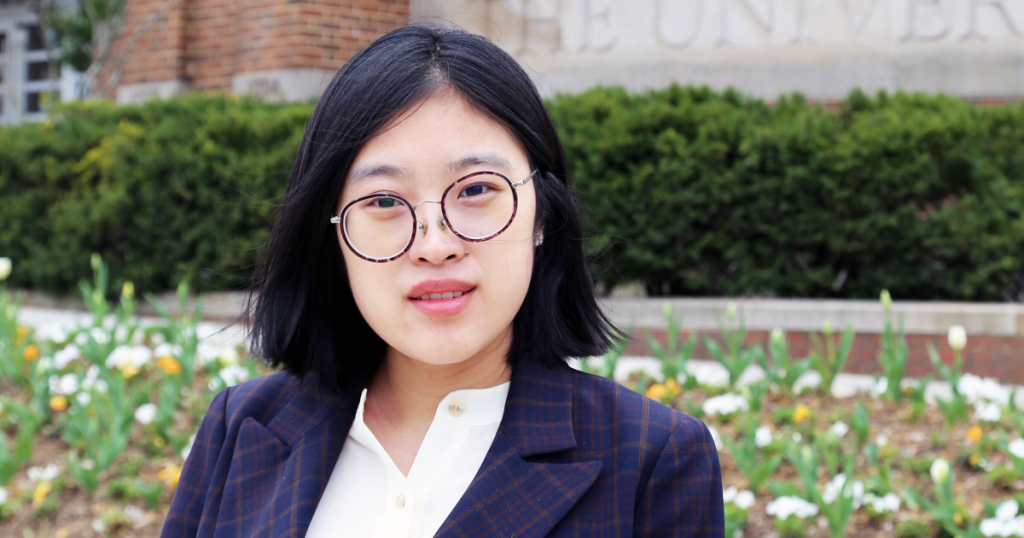Last year, UT alumna Yang Song launched Spatia, a startup company that employs generative artificial intelligence (AI) for interior, architectural, and landscape design.
It grew out of her desire to create a teddy bear-themed room for her two young children.
“I wanted to give my kids a special space,” said Song, who earned her doctorate in electrical engineering and computer science in 2019 from the Tickle College of Engineering and then spent two years working as a researcher at Apple.
Song said she could envision the room she wanted to make for her children, but had difficulty describing it to designers. So, she thought, “why not develop a tool” that could do it for her?
“I always have had a passion for design,” she said. “And I always wanted to be an entrepreneur.”
With advances in AI, Song knew her moment had come. She left Apple to create Spatia.
Traditionally, designers have had to use complicated tools and computer programs to produce renderings and 3D models of their projects. The work was time-consuming.
Song devised algorithms that employ generative AI to create an image of what she could see with her mind’s eye. The result: a tool that allows users to upload a sketch or photo—or even a type-written description—and then let AI bring the vision to life in minutes. With the initial design in hand, customers can use online tools to tweak it to their liking.

Song’s initial work focused on interior design. Partnering with friend Qianru Ma, a computer engineer who previously worked for Airbnb and LinkedIn, they expanded Spatia to include architectural and landscape design.
While the online tool can be used by consumers who want to generate design ideas or develop mock-ups to show professional designers, Song said they expect most of their customers to be businesses. With their technology, furniture stores can show customers how specific pieces will look amid their home decor. Landscapers can quickly produce multiple lawn and garden design options for homeowners. Realtors can virtually stage homes. Architects can transform renderings into brick-and-mortar images.
Spatia’s first paid customer is a cabinetmaker. The start-up wrote and integrated algorithms into the cabinetmaker’s website. Engaging with a Chatbot on the website, customers type in a brief description of what they’re seeking. AI then uses products in the cabinetmaker’s inventory to generate a custom design that aligns with the request.
Born and raised in China, Song earned her bachelor’s degree in electrical and electronics engineering from Northeastern University in Shenyang, China, and her master’s degree in electrical and electronics engineering from Zhejiang University in Hangzhou, China.
After Hairong Qi, the Gonzalez Family Professor in the Min H. Kao Department of Electrical Engineering and Computer Science, made a presentation at Song’s college in China, Song decided to move to Tennessee to complete her doctorate at UT.
“I’m really enjoying the journey of being an entrepreneur,” said Song, who now lives in the San Francisco Bay area with her husband, Jeff, and their daughter, Raelynn, 5, and son, Nolyn, 2. While computer engineering is her wheelhouse, she spends ample time courting investors, soliciting customers, marketing the business, gathering and analyzing feedback, and mapping out a strategy that will help them take their company nationwide—even global—in years to come.
“It’s challenging, but we have a long-term vision,” Song said.
Drawing from her experience working on Apple Vision Pro, Apple’s newly launched spatial computing technology, Song said she imagines creating wearable devices that would allow designers to “see” the physical spaces they’re working on or allow stores to welcome customers into their virtual—rather than physical—showrooms.
